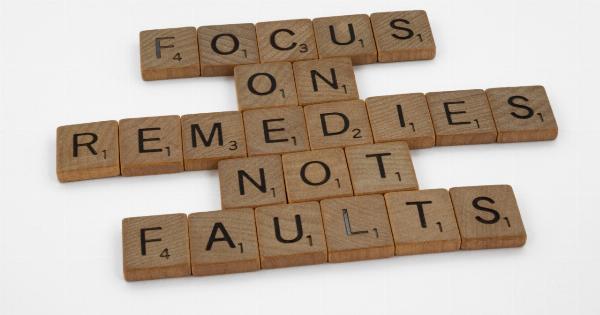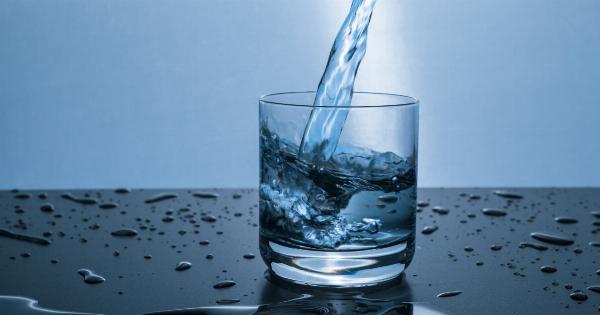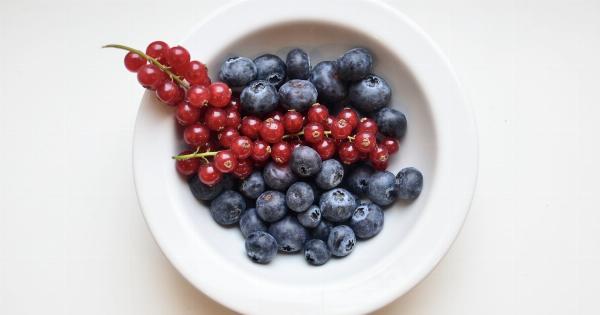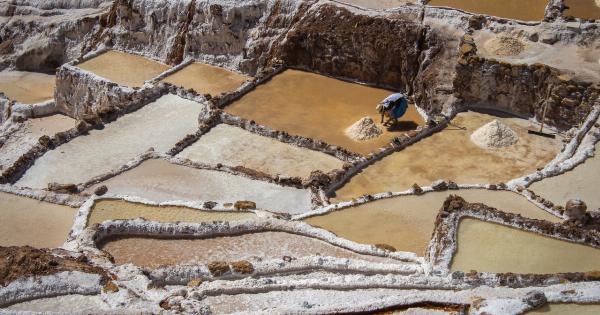Salt, or sodium chloride, is a mineral that plays a crucial role in our body. It helps to maintain the balance of fluids, supports nerve and muscle function, and is involved in various bodily processes.
However, consuming too much salt can have detrimental effects on our health, particularly when it comes to cardiovascular health. In this article, we will explore the reasons why reducing salt intake is essential for a longer and healthier life.
The Relationship between Salt and High Blood Pressure
One of the most significant concerns surrounding excess salt consumption is its link to high blood pressure, also known as hypertension. High blood pressure is a major risk factor for heart disease, stroke, and other cardiovascular conditions.
When we consume too much salt, the body retains excess water to maintain a proper balance of fluids, resulting in increased blood volume. This, in turn, puts extra pressure on the blood vessels, leading to high blood pressure.
Reducing salt intake helps to lower blood pressure levels, subsequently decreasing the risk of developing cardiovascular diseases.
According to various studies, even a small reduction in salt consumption can have a significant impact on blood pressure, particularly in individuals who already have hypertension.
The Role of Salt in Kidney Function
Another vital organ affected by excessive salt intake is the kidney. The kidneys play a crucial role in filtering waste products and excess fluid from the blood, maintaining electrolyte balance, and regulating blood pressure.
However, when we consume too much salt, the kidneys’ ability to regulate fluid balance is compromised.
Excess salt can lead to water retention, which increases the workload on the kidneys. Over time, this can result in kidney damage and decreased kidney function.
By reducing salt intake, we can help protect our kidneys and promote better overall kidney health.
Salt and Osteoporosis: The Hidden Connection
While most individuals associate the risk of osteoporosis with calcium deficiency, excessive salt intake can also contribute to bone health problems.
Excess salt causes the body to excrete more calcium through urine, leading to a decrease in bone density over time.
A decrease in bone density increases the risk of fractures and osteoporosis, particularly in older individuals.
By reducing salt intake and maintaining a balanced diet rich in calcium and vitamin D, we can promote better bone health and lower the risk of osteoporosis.
The Impact of Salt on Stomach Health
Excessive salt intake can also have adverse effects on our stomach and digestive system. High salt consumption has been linked to an increased risk of stomach cancer.
Furthermore, salt can irritate the stomach lining, leading to inflammation and discomfort.
Reducing salt intake can help prevent stomach-related issues and promote a healthier digestive system. It is essential to adopt a well-balanced diet and consume salt in moderation to maintain optimal stomach health.
Tips for Reducing Salt Intake
Now that we understand the various health risks associated with excessive salt consumption, it is crucial to make an effort to reduce our salt intake. Here are some practical tips to help you get started:.
1. Read Food Labels
When shopping for groceries, take the time to read food labels carefully. Many processed and packaged foods contain high levels of sodium.
Opt for lower-sodium alternatives, or better yet, choose fresh, whole foods that allow for better control over salt content.
2. Cook at Home
Home-cooked meals give you complete control over the ingredients you use. By preparing dishes from scratch, you can limit the amount of salt added without compromising flavor.
Experiment with herbs, spices, and other flavor-enhancing ingredients to reduce your reliance on salt.
3. Limit Processed and Fast Foods
Processed and fast foods are notorious for their high sodium content. These convenience foods often prioritize taste and shelf life over health concerns.
Minimize your intake of these foods as much as possible to reduce salt consumption and improve overall health.
4. Use Natural Alternatives
Instead of relying solely on salt for flavoring, explore other natural alternatives. Herbs like rosemary, thyme, and basil can add depth to your dishes without adding excessive sodium.
Freshly squeezed lemon juice or vinegar can also enhance flavor and reduce the need for salt.
5. Be Mindful of Hidden Salt
It’s important to be aware of hidden sources of salt in our diets. Condiments like soy sauce, ketchup, and salad dressings can contain significant amounts of sodium.
Opt for low-sodium alternatives or use them sparingly to control your overall salt intake.
6. Gradual Reduction
Instead of drastically cutting salt from your diet, aim for a gradual reduction. Our taste buds can adapt over time, so reducing salt slowly allows your palate to adjust.
Over time, you may find that you genuinely enjoy flavors without relying on excessive salt.
7. Opt for Unprocessed Sea Salt
If you prefer to use salt in your cooking, consider switching to unprocessed sea salt. Unlike regular table salt, sea salt may contain trace minerals that can offer additional health benefits.
However, it is still crucial to use any type of salt in moderation.
8. Stay Hydrated
Drinking enough water is essential in maintaining a healthy balance of fluids in the body. When we are adequately hydrated, our bodies are less likely to retain water due to excess sodium consumption.
Aim to drink at least eight glasses of water a day to support your overall health.
The Long-Term Benefits of Reducing Salt Intake
By making a conscious effort to reduce salt intake, we can reap numerous long-term health benefits. Some of the advantages include:.
1. Lowered Blood Pressure
As discussed earlier, reducing salt intake can help lower blood pressure levels, subsequently decreasing the risk of heart disease, stroke, and other cardiovascular conditions.
2. Improved Kidney Function
Lowering salt intake can reduce the strain on the kidneys and promote better kidney function. This, in turn, lowers the risk of kidney damage and related complications.
3. Better Bone Health
Reducing salt intake decreases the excretion of calcium through urine, promoting better bone health and reducing the risk of osteoporosis and fractures.
4. Reduced Risk of Stomach Cancer
By cutting down on salt consumption, we can lower the risk of stomach cancer and minimize inflammation and discomfort in the stomach.
Conclusion
In conclusion, reducing salt intake plays a crucial role in maintaining good health and promoting a longer life.
By being mindful of our salt consumption and making small changes to our dietary habits, we can significantly reduce the risks associated with excessive salt intake. Start implementing these changes today for a healthier future.





























